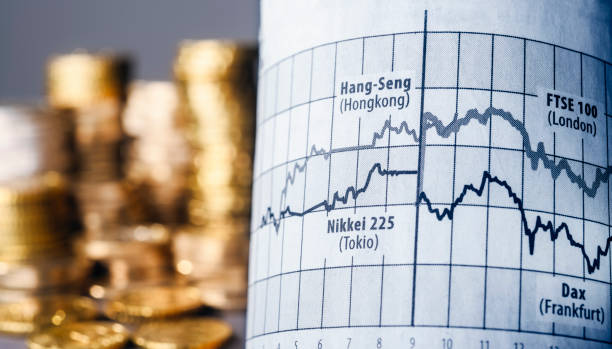The Hang Seng Index (HSI) is one of the most significant stock market indices in Asia and serves as a barometer of the Hong Kong stock market’s performance. This article delves into the HSI stock market index, its composition, significance, and the factors influencing its movements.
What is the HSI?
The HSI stock market index was established in 1969 and is compiled and published by Hang Seng Indexes Company Limited, a subsidiary of Hang Seng Bank. The HSI tracks the performance of the largest and most liquid companies listed on the Hong Kong Stock Exchange (HKEX). It includes a diverse range of sectors, such as finance, telecommunications, technology, and consumer goods, providing a comprehensive overview of the Hong Kong equity market.
The index consists of 50 constituent stocks, representing about 60% of the total market capitalization of the HKEX. To be included in the HSI, companies must meet specific criteria, including a minimum market capitalization and liquidity. The index is weighted by market capitalization, meaning larger companies have a more significant influence on the index’s movements.
Importance of the HSI Stock Market Index
The HSI stock market index is crucial for several reasons:
Market Benchmark: As the primary indicator of the Hong Kong stock market’s performance, the HSI serves as a benchmark for investors and fund managers. It provides a standard against which the performance of individual stocks and investment funds can be measured.
Investment Vehicle: The HSI is often used as a basis for financial products, including exchange-traded funds (ETFs) and mutual funds. These investment vehicles allow investors to gain exposure to the broader Hong Kong market without having to purchase individual stocks.
Economic Indicator: The HSI stock market index reflects the overall health of the Hong Kong economy. As such, it is closely monitored by economists, policymakers, and analysts to gauge economic trends and sentiment. Movements in the HSI can provide insights into investor confidence and economic conditions.
Global Influence: Given Hong Kong’s status as a global financial center, the HSI’s performance is not only significant for local investors but also for international markets. Changes in the index can influence global market trends and investor sentiment, particularly in Asia.
Also Read: Blue-Chip Stocks to Invest in for Long-Term Growth
Composition of the HSI
The HSI is comprised of 50 constituent stocks that are selected based on their market capitalization and trading volume. These stocks are categorized into four main sectors:
Finance: This sector includes banks, insurance companies, and financial services firms. It often has the highest representation in the HSI, reflecting Hong Kong’s status as a leading financial hub.
Utilities: Companies in this sector provide essential services such as electricity, water, and gas. Their stable performance often makes them a safe investment choice during market volatility.
Properties: The property sector in Hong Kong is significant due to the city’s high real estate prices. Companies involved in property development and management are key components of the HSI.
Consumer Goods: This sector includes companies that produce or sell goods directly to consumers, such as retail and food and beverage companies. Their performance can indicate consumer spending trends and overall economic health.
Factors Influencing the HSI
Several factors can influence the HSI stock market index’s performance:
Economic Data: Economic indicators such as GDP growth, unemployment rates, and inflation can impact investor sentiment and, consequently, the HSI. Strong economic data may lead to increased investment and a rising index, while negative data can have the opposite effect.
Monetary Policy: The monetary policy set by the Hong Kong Monetary Authority (HKMA) can influence interest rates and liquidity in the market. Changes in interest rates can affect borrowing costs for companies and consumers, impacting their spending and investment decisions.
Global Markets: As a part of the global financial system, the HSI is influenced by movements in other major stock markets, such as the United States and Europe. Economic events and policy changes in these regions can affect investor confidence and trading activity in Hong Kong.
Geopolitical Factors: Hong Kong’s unique political status and relationship with mainland China can significantly impact the HSI. Political unrest, changes in government policy, and international relations can create uncertainty for investors, leading to volatility in the index.
Sector Performance: The performance of specific sectors within the index can also influence the HSI’s overall movements. For example, if the finance sector experiences significant gains or losses, it can have a substantial impact on the index due to its larger representation.
Conclusion
The HSI stock market index is a vital indicator of the health and performance of the Hong Kong stock market. As a benchmark for investors and a reflection of the broader economy, the HSI offers insights into market trends and investor sentiment. By understanding the composition, significance, and factors influencing the HSI, investors can make informed decisions about their investments in the Hong Kong market. The HSI remains an essential tool for analyzing market conditions and navigating the complexities of one of the world’s leading financial centers.

